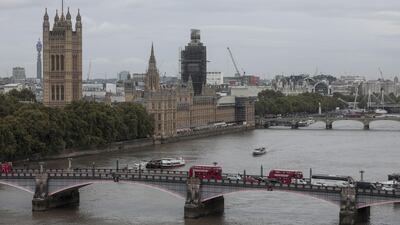As UAE and regional developers continue to unveil both luxury and affordable real estate across the Gulf, regional investors are increasingly setting their sights further afield.
Despite uncertainty in East and West — be it a looming Brexit, the ongoing travails of the Trump administration, see-sawing mainland-related tensions in Hong Kong, or ongoing refugee crises in Europe — Arab world investors are gazing outward.
Knight Frank, the global property consultant, has witnessed sustained levels of demand for cross-border investments — both commercial and private. While overall outbound investment volumes from the Middle East have fallen in recent years, mainly due to a general tightening of sovereign wealth funds, private capital and smaller institutions remain extremely active. Knight Frank’s private wealth data shows that of the $6.3 billion in private capital being targeted at commercial real estate, the vast majority is focused towards Continental Europe, the UK and the US.
Despite concerns raised by Brexit and uncertainty surrounding what a Boris Johnson-led Conservative Party means for British real estate, over two-thirds of the capital tracked from GCC countries is parked in the UK’s real estate sector. The substantial proportion in London highlights a preference for the country’s capital, but more and more investors are moving into the UK’s northern cities to explore more attractive returns and capital growth.
According to Knight Frank, the UK has been a key destination for cross-border capital for the last six to 10 years, and London has remained the top global city for office investment for almost a decade. For Middle East investors, the attraction to British real estate remains strong. This trend is aided by the range of benefits investors can take advantage of in the UK’s commercial market, namely overall sector size, high-quality assets and transparency.
The US still welcomes the majority of outbound Middle East capital by absolute volume, although this is skewed by larger transactions completed by institutions, many of whom have an investment strategy to build up Stateside portfolios in a country with a solid reputation among international investors. The US dollar has made transactions easier to calculate when transferring greenback-pegged GCC currencies. The US remains a popular tertiary education destination for GCC nationals, with extended time at Ivy League universities incentivising property purchases by wealthy investors.
Continental Europe continues to emerge as a key investment target for GCC-based investors. In June 2017, 81 per cent of private investors were looking at the UK as their preferred investment location, but by June 2018 the figure dropped to 67 per cent. With current preferred destinations including the Netherlands and Germany, reports by Knight Frank show Middle East investors contributed US$7.5 billion in outbound real estate in 2018, with capital flowing to the US, UK, Netherlands, Germany and Spain at $3.3bn, $2.7bn, $700m, $600m and $300m, respectively.
Regional investors continue to be attracted to stable real estate markets in extremely competitive debt markets, which assist in generating heightened cash returns. With the launch of major start-up and technology hubs, central European cities such as Berlin, Frankfurt and Lisbon have also become attractive investment destinations due to strong capital growth and sound economic performance.
In addition to these traditional real estate heavyweights, the small Mediterranean island of Cyprus is also on the radars of investors who want to combine convenient holiday or rental properties with an advantageous residency programme. Cyprus recently amended its citizenship-through-investment scheme, a core pillar of which is dedicated for property investors. It grants citizenship — and with it the right to live, work, study and invest in all 28 EU countries — to those who invest a minimum of €2m (Dh8.12m) in real estate.
Similar investment-to-residency programmes have gained popularity over the years in the Middle East, and have allowed an alternative path for regional investors to purchase property abroad at the same time as creating a flow of foreign direct investment (FDI) for countries offering these schemes.
While programmes from the likes of Cyprus, Bulgaria and Malta fall under a category that provides full-citizenship, and a passport provided enough money is invested, other countries such as Portugal and Spain offer the chance to obtain a ‘golden visa’ which offers similar residency rights without granting citizenship.
These programmes have been a godsend for businesses and independent investors who have found themselves at a disadvantage as a result of socio-political crises impacting markets across the region. They've also allowed Middle Eastern companies, investors and end-users to stay relevant in real estate markets across the globe.
On a global level, GCC investors recognise the property sector continues to offer excellent prospects for capital growth — profit is profit, no matter what territory it is made in.
Chris Speller is Cityscape group director at Informa Markets. Cityscape Global runs from 25-27 September at the Dubai World Trade Centre.


